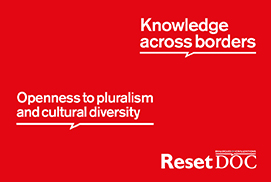23 March 2015
Along with the idea of "secularization", the theory of "modernization" has been recently questioned as yet another by-product of the Englightenment linear view of history. Drawing on Max and Alfred Weber's comparative work, on Karl Jaspers' notion of an axial age which encompasses a plurality of ancient civilizations, Shmuel Eisenstadt, Johan Arnason, Jan Assman, Björn Wittrock and a number of other leading social theorists have put forward a new framework for making sense of global history, known under the heading of "multiple modernities". In this paper, I will highlight some of the questions that the "multiple modernities" approach can generate in the specific field of political philosophy. Assuming that we can distinguish formal democracy as a set of procedures that can merely ritually be paid lip service to from "democracy with a democratic spirit", can we disentangle the "spirit of democracy" from its original roots in the culture of radical protestantism and envisage a plurality of "cultures of democracy" anchored to various civilizational bedrocks? Are "multiple democracies" genuinely viable versions of the same model of political order, or are they way-stations towards the Western modern form of liberal democracy?


